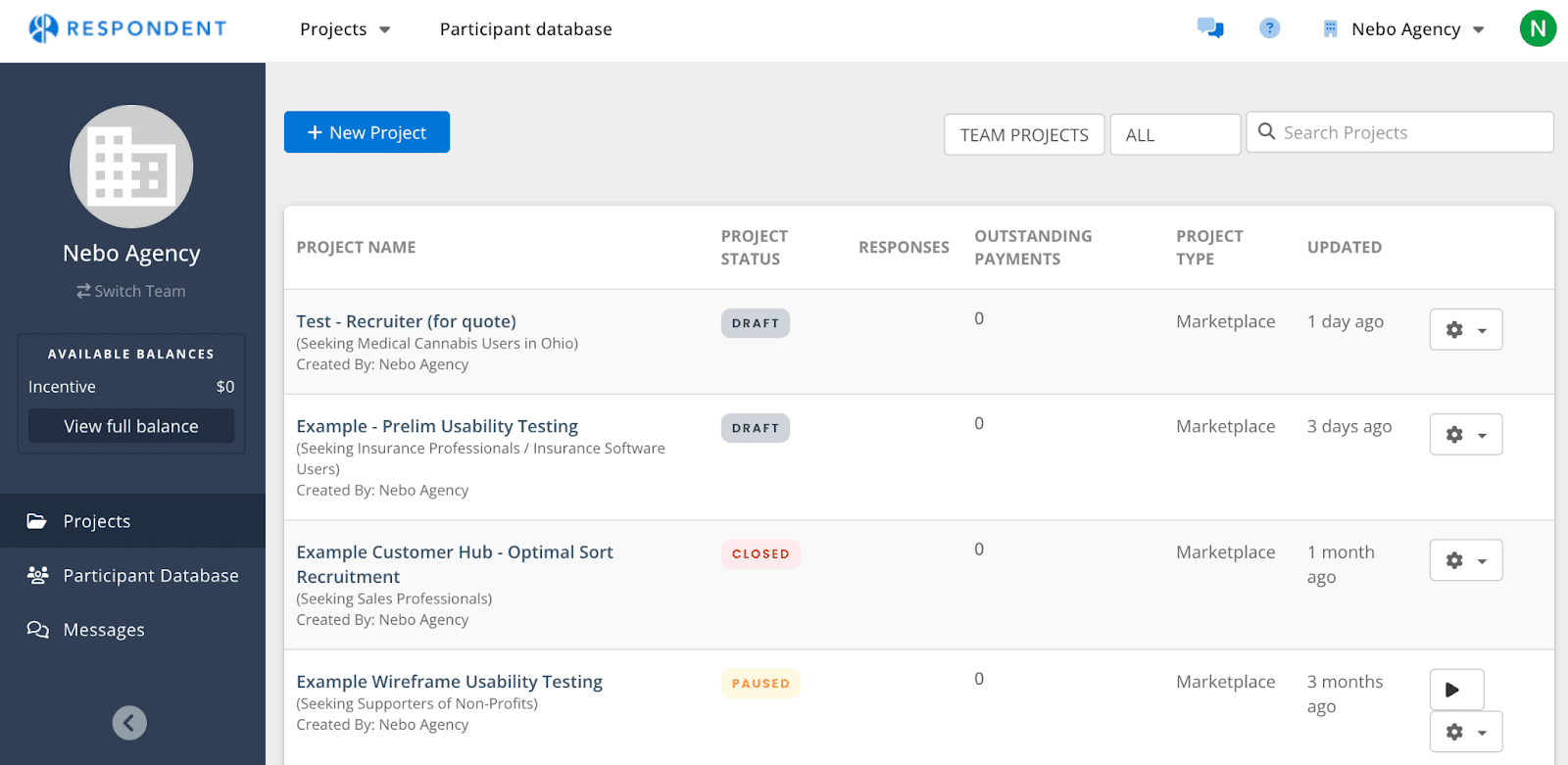
Data gathering through original research has long been hailed as the ultimate tool for link building. As AI-generated content becomes more prevalent and sites like Reddit are dominating, original research is at its most necessary.
In a world where unique content reigns supreme, you can’t beat the value of first-party data collection. It’s more than just link bait; it’s future-proofing your SEO strategy.
Data-driven insights from surveys and interviews elevate your content in a sea of sameness. It’s more engaging and offers unparalleled value. Most importantly, no AI tool can replicate insights derived from proprietary research.
Publishing original research improves your position as a thought leader, building trust and authority with your audience.
Identify your needs: Types of data gathering
Data gathering for SEO can be done in several different ways, including surveys, in-depth interviews or focus groups.
Surveys
These are great for gathering a standardized collection of information from a large number of respondents. They are efficient, easy to create and administer and arguably the easiest to analyze.
At the same time, a survey may not capture nuanced opinions or more detailed insights. If you choose to start with surveys, thoughtful and open-ended questions will ensure you have qualitative data to inform your SEO and content efforts.
In-depth interviews
Conduct one-on-one conversations with a participant to explore specific topics and ask in-depth questions. These interviews typically yield comprehensive, qualitative data that is great for identifying deep and unique insights.
However, they are time-consuming – to conduct and analyze – and that generally means limiting the sample size to make things more manageable.
Focus groups
Focus groups are similar to in-depth interviews but involve a small group of participants rather than a single participant. They promote interactive discussions and allow for multiple perspectives and opinions within a shorter time frame.
The group dynamic often uncovers unique collective views or differences in opinions. The key to a great focus group is a strong moderator who can ensure there are no overly dominant voices and that the conversation moves in the direction intended.
Dig deeper: An SEO guide to audience research and content analysis
Collect the data: Crafting questions and distribution
Before you get to crafting questions, distribution and data collection, start by defining clear objectives for your research.
At a high level, the goal of this research is to make sure the data collected can inform your SEO and content strategy. With that in mind, ask yourself:
- Are you looking to uncover customer pain points or preferences?
- Do you want to better understand the buyer journey?
- Are you simply exploring new content ideas?
- Is there a relevant theme or trending topic you ultimately want to focus the research on?
Once you have determined what you want to achieve with your survey, you are ready to craft your questions or discussion guide.
Ensure your questions are clear, concise and directly related to your objectives. Avoid leading questions and, for interviews and focus groups specifically, ensure you prepare follow-up questions that go deeper than initial responses.
Now you are ready to distribute your survey or conduct interviews. You can use a variety of different channels to reach your audience, such as email newsletters, social media and your website.
There are a ton of great tools – paid and free – that you can use to share your survey and/or find participants (more on that below!).
Surveys and interviews are most effective when they are conducted with a large and diverse group of participants. To ensure you get the participation and completion rates you want, try offering an incentive like a discount, gift card or entry into a giveaway.
Tools
If you have the budget, a platform like Qualtrics is a great comprehensive “experience management platform.”
With Qualtrics, you can build and distribute surveys (including recruitment), collect responses and analyze response data from within the same platform. The statistical analysis is what sets this platform apart and makes it that much easier to identify valuable insights.
Respondent is an amazing recruitment tool that can easily identify qualified participants for surveys, interviews or focus groups. This tool connects you with participants, then you can utilize a survey built on any tool – Qualtrics, SurveyMonkey, JotForm, Google Forms and more.

Many survey tools are relatively inexpensive, if not free and are extremely easy to get started – SurveyMonkey, Jotform or Google Forms are all great places to start.
Analyzing the data
You can have all the data and research you ever dreamed of – but just having data doesn’t mean you truly understand your customers. Without intelligent analysis and insight, data means nothing.
Your goal? To identify patterns and correlations that will significantly impact your SEO strategy and content marketing efforts.
With clean and abundant data on hand, analyze everything to uncover trends, patterns, preferences and new content opportunities. You will have a culmination of quantitative and qualitative data – not to mention data ownership and customization.
Consider the responses as a whole and whether they are representative of your larger audience base, as well as the demographics of the respondents. Be sure to consider the results through the lens of your objectives. This is critical to using the information to inform your SEO efforts and content strategy.
Dig deeper: Optimization beyond data: Design thinking for SEO
Take action: Publish the original research
The value of this research is not only in informing your SEO strategy moving forward but also in the completely unique and original content itself. The true value lies in the stories the data can tell.
Data presented within a narrative framework can more effectively capture and hold attention than just numbers and statistics. It helps people grasp the significance of the data and its implications.
A well-told story can make data more relatable and memorable, helping you connect emotionally with your audience. It also helps build trust and authority by showing that conclusions are based on evidence and analysis.
Transparent storytelling that highlights the data sources and methodology clearly can build credibility with the audience.
Publishing your original research on your site can be done as a blog post, a static page you update, a whitepaper, etc. However, it’s important to consider the timeliness of the data and if it’s something you want to update regularly.
Remember to incorporate strong visuals to make the data easier to digest. The right graphics can simplify complex information and better illustrate relationships or trends. By incorporating well-designed visuals, you can present your data more effectively, making it more impactful.
Don’t forget to promote your research. If published as a white paper or static page, create a blog post for promotion and scannability.
Share via social media and email marketing. Pitch to industry publications as well as relevant journalists and bloggers. This not only drives traffic but also earns inbound links from reputable sources and creates social proof.
Take it a step further: Integrate into your SEO strategy
To get the most out of your original research, don’t stop at just publishing a new page. You can use the information gathered to inform SEO strategy in many more ways.
Better understand your audience
With the right analysis, primary research can provide incredible insights into your audience’s preferences, behaviors and needs. Where third-party data can be generic, first-party data gathered via surveys or interviews is tailored to your business, industry and potential customers.
Knowing what your audience cares about lets you directly address their interests and concerns. The analysis is all about reading between the numbers to find your customers’ wants and needs, desires and problems – and what your brand can do to make their lives a little better.
How can we better match user intent when they are searching online? What are they searching for but can’t seem to find?
What phrases or long-tail queries are they using? What consistent patterns or correlations do you see?
Are there potential zero-click searches we should be targeting? And how can we use these insights to better inform site optimization from title tags to site copy?
Enhance your content strategy
Another significant opportunity with data gathering for SEO is using that original research to inform your content strategy.
These surveys and interviews can uncover specific terms and phrases your audience uses or even relevant topics your audience is interested in.
With this information, you can refine your keyword research to better address what they are searching for. It also allows for unique content personalization. You can tailor site content to different segments and demographics, increasing relevance and engagement.
Surveys and interviews can also highlight gaps in your existing content or suggest entirely new areas to explore. Based on survey responses, create blog posts, articles or guides.
Develop whitepapers or case studies that can be shared with industry publications, journalists and influencers, building your link profile and authority.
Stand out in the sea of sameness
Using data gathering and original research to tell a story is an arguably under-utilized SEO tactic.
It’s beneficial for better understanding your audience and improving your content strategy. In the age of AI-generated content, original research stands out, allowing you to create content like no AI tool ever could.
By integrating data into a compelling narrative, you can transform raw numbers into a powerful tool. Telling a story through the data is key – you have to humanize the data and evoke emotion while highlighting key insights.
Original research can ensure sustainable, data-driven success while building lasting authority and trust. It can also help beat Reddit and the big publishers with a unique approach to original content.
source https://searchengineland.com/data-gathering-seo-444037



0 Comments